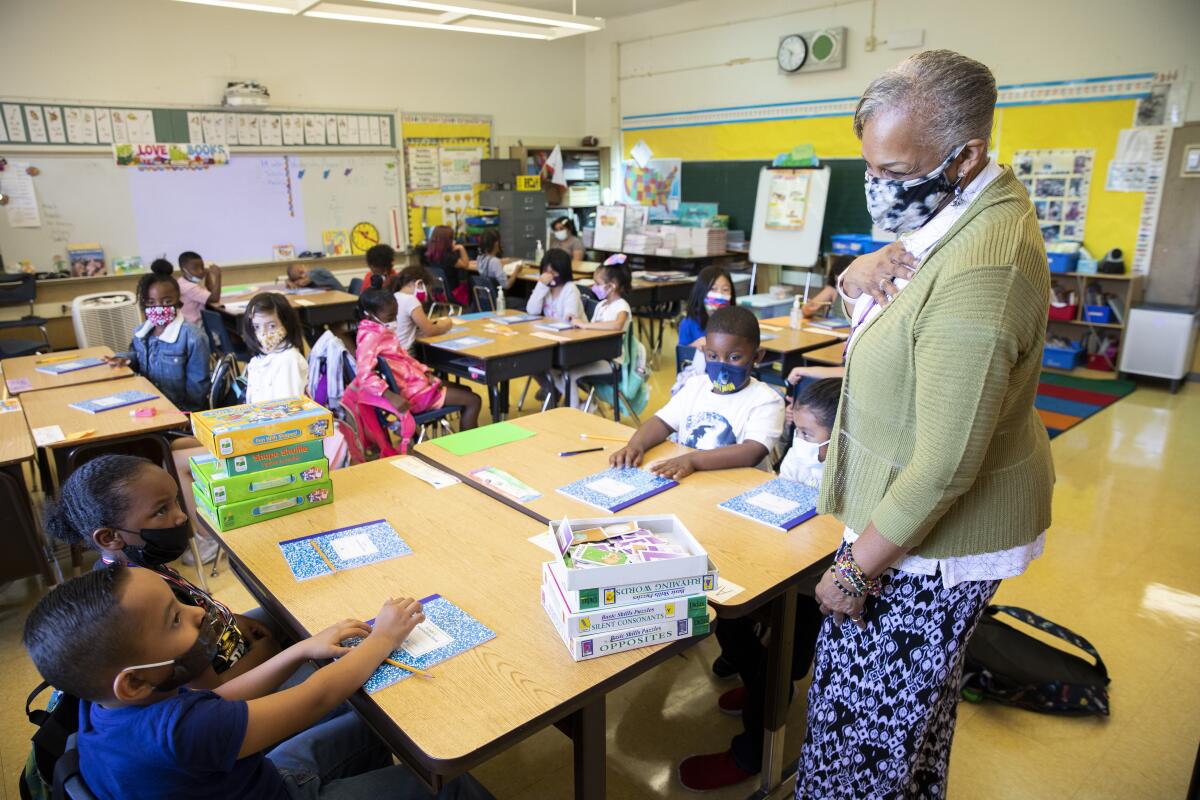Fundraising Ideas to Assist In Saving Temecula Schools and Programs
Fundraising Ideas to Assist In Saving Temecula Schools and Programs
Blog Article
Necessary Criteria to Take Into Consideration When Assessing Potential Schools for Registration
When thinking about colleges for enrollment, evaluating vital criteria ends up being vital to making sure a helpful learning setting. The school's society should advertise respect and inclusivity to cultivate a helpful neighborhood.
Academic Programs
When reviewing prospective colleges for registration, thinking about the breadth and depth of their scholastic programs is extremely important. High-quality scholastic programs not just determine the educational worth a pupil will receive yet likewise affect future chances and profession paths. Possible students and their households must inspect the curriculum to ensure it straightens with the trainee's scholastic passions and profession goals.
Accreditation is a vital variable, as it represents that the organization satisfies well-known requirements of quality. In addition, the diversity of course offerings, including sophisticated positioning (AP) or Global Baccalaureate (IB) programs, can substantially enhance a student's learning experience. Colleges with robust scholastic tracks in STEM, liberal arts, and the arts suggest a dedication to thorough education.
Professors certifications and student-to-teacher proportions are likewise essential indications of academic quality (Save Temecula Schools). Highly credentialed teachers and smaller sized class sizes commonly lead to even more individualized interest and a much better academic experience. The availability of scholastic sources such as collections, research laboratories, and technology centers can even more enhance the learning environment.
Evaluating these elements guarantees that the selected institution gives a encouraging and extensive scholastic structure, necessary for promoting intellectual development and preparing pupils for future success.
Extracurricular Tasks
Beyond the academic realm, extracurricular tasks play a considerable duty fit an all-round educational experience. These activities offer trainees with opportunities to create abilities that prolong beyond the class, such as time, leadership, and team effort administration. When reviewing prospective institutions for registration, it is vital to think about the range and high quality of extracurricular programs offered.
A varied array of tasks, including sports, arts, music, argument clubs, and social work campaigns, can satisfy various interests and talents. Schools that sustain a broad range of extracurriculars show a commitment to promoting holistic advancement. In addition, engagement in these activities can enhance college applications and resumes, showcasing a pupil's capability to balance multiple obligations.
It is also crucial to analyze the centers and sources offered for these tasks. Top quality facilities and seasoned teachers can considerably impact the performance and enjoyment of the programs. Furthermore, think about the level of trainee interaction and the school's support of involvement. Colleges that actively advertise extracurricular involvement commonly develop a dynamic, inclusive community.
Course Sizes
Among the vital elements to think about when reviewing prospective schools for registration is course size. Class size dramatically affects the quality of education that a trainee gets. Smaller sized course sizes often allow for even more individualized attention from teachers, which can lead to enhanced scholastic end results. Educators are better able to determine and resolve the one-of-a-kind needs of each trainee, cultivating a more tailored discovering experience. Additionally, in smaller sized courses, trainees are more probable to join conversations and involve with the product, improving their total comprehension and critical reasoning skills.
Moreover, smaller sized course sizes can add to a much more cohesive class setting. With fewer students, there is a higher chance for developing solid partnerships between peers and instructors, which can boost the learning atmosphere and promote a sense of community. This likewise enables more efficient classroom management, as teachers can dedicate more time to keeping a positive and effective atmosphere.

Institution Culture
Understanding the importance of school society is necessary when examining prospective institutions for registration. College society includes the worths, beliefs, and habits that shape the social and discovering atmosphere. A helpful and inclusive culture cultivates student engagement, scholastic success, and individual growth. Evaluating a college's culture entails Read Full Report observing communications amongst students, educators, and team, in addition to recognizing the college's goal, worths, and assumptions.
Potential moms and dads and pupils must look for schools that focus on respect, cooperation, and a favorable ethos. Search for indications such as solid student-teacher partnerships, active engagement in institution tasks, and a feeling of community. A healthy and balanced institution society commonly advertises variety and incorporation, ensuring that students from different histories feel welcomed and valued.
Additionally, a favorable college culture motivates open interaction and supplies pupils with a risk-free atmosphere to reveal themselves. When visiting a college, engage with present trainees and personnel to evaluate their fulfillment and sense of belonging.
Facilities and Resources
When reviewing potential schools for registration, the quality and accessibility of facilities and resources play an important function in shaping the educational experience. An institution equipped with modern-day features can significantly improve learning end results. Class should be well-designed, promoting an environment for both focus and creativity. Laboratories, whether for scientific research, modern technology, or languages, should be well-maintained and updated to provide hands-on knowing chances.
Libraries are an additional cornerstone of scholastic quality (Save Temecula Schools). A well-stocked collection with a diverse array of publications, journals, and digital resources can support pupils' research demands and foster a culture of reading and questions.
Technology is important in today's educational landscape. Institutions should provide link reliable net accessibility, computer system laboratories, and clever class to facilitate electronic learning. Furthermore, specialized resources such as art workshops, songs areas, and cinema areas can support imaginative abilities.
Inevitably, the breadth and quality of an institution's facilities and resources can substantially influence a trainee's general development. Thus, parents must meticulously examine these aspects to make certain a well-rounded and enriching instructional experience.
Conclusion
In recap, evaluating prospective schools for registration demands an extensive analysis of several important factors. Academic programs need to align with pupils' academic passions and profession aspirations, while professors certifications and appropriate course sizes are pivotal for personalized direction. The availability of robust facilities and resources, along with a varied range of after-school activities, cultivates all natural growth. Additionally, an institution culture that stresses respect and inclusivity is vital to developing a reliable and supportive learning environment.

A healthy institution culture commonly advertises variety and addition, ensuring that trainees from different backgrounds feel invited and valued.
Furthermore, a favorable institution society urges open interaction and supplies pupils with a risk-free special info environment to reveal themselves.
Report this page